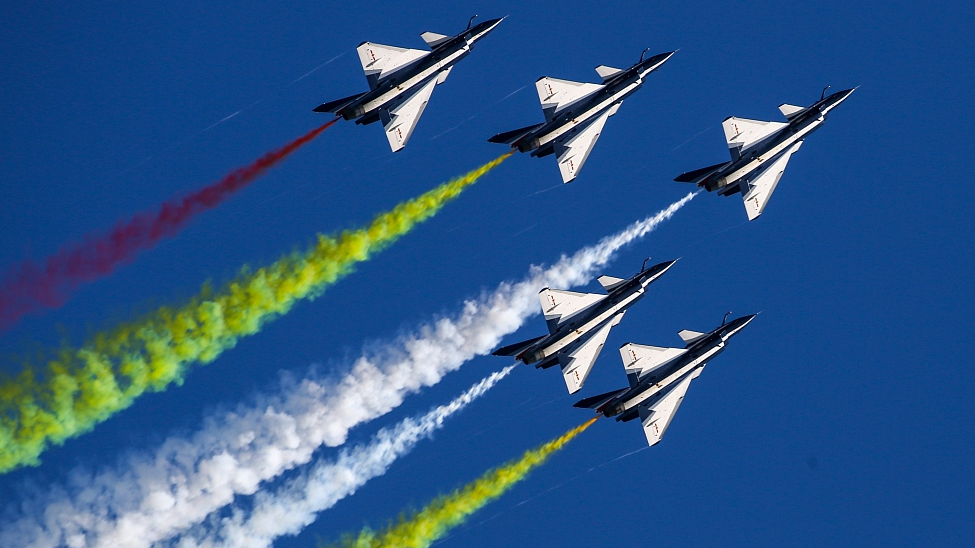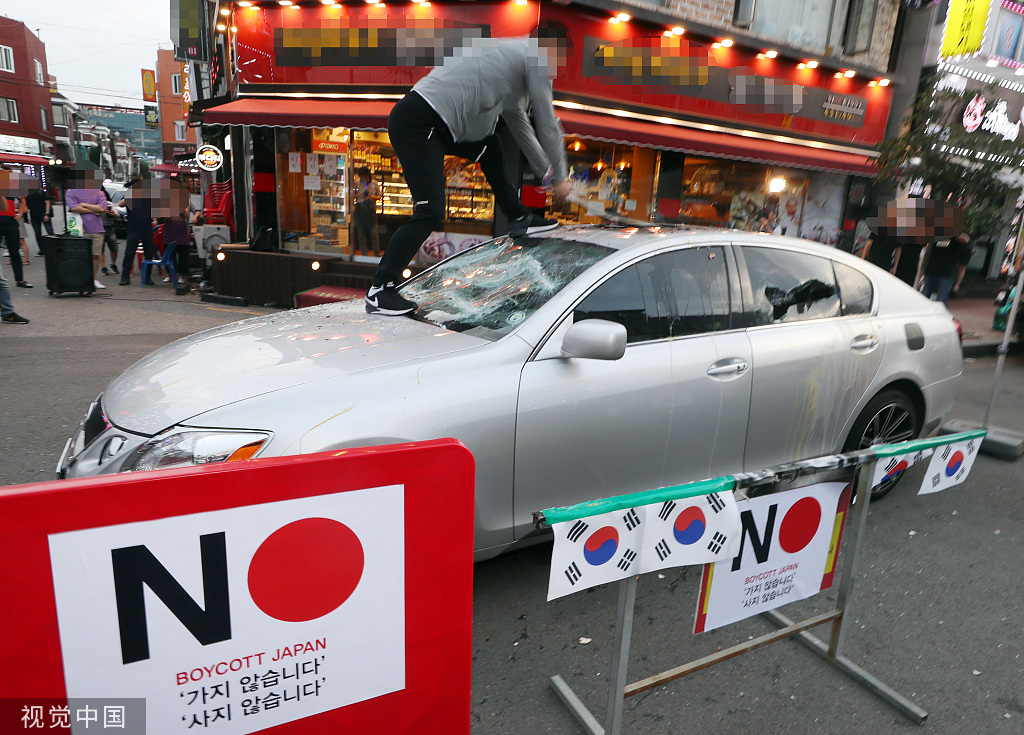

Editor's Note: Tom Fowdy is a British political and international relations analyst and a graduate of Durham and Oxford universities. He writes on topics pertaining to China, the DPRK, Britain and the United States. The article reflects the author's opinions and not necessarily the views of CGTN.
On Tuesday, July 23, an international incident occurred. A Russian Federation military aircraft allegedly entered the airspace of the Republic of Korea (ROK) around the islet of Dokdo in the East Sea. The purported incursion resulted in Korean forces firing warning shots at Moscow's plane. Japan also claims the territory, which it calls Takeshima, as its own and responded by lodging protests to both the ROK and Russia's foreign ministries, claiming its airspace was violated.
It was later learned that the incident occurred in the middle of a joint China-Russia military exercise that's taking place in the East Sea. Although Beijing was in no way involved in the accident, mainstream media and the United States have pounced on the opportunity to frame the event as a manifestation of "China threat."
A Pentagon statement directly blames China. Meanwhile, a BBC report on the event led with the headline "Russia-China 'joint air patrol' sees Japan and South Korea scramble jets." The subsequent "analysis" in the story portrays China and Russia collaborators dedicated to resisting the West by saying that the incident "sends a powerful signal of the developing military relationship between Moscow and Beijing." It also accuses Beijing of being willing to violate the sovereignty of others. Other Western outlets followed with similar discourses.

Mark Esper, the newly confirmed U.S. Secretary of Defense, is going to oversee the future security relationship between the U.S. and China. Washington D.C., July 16, 2019. /VCG Photo
But what are the facts? The real story here is that South Korea is weaponizing a sensitive territorial claim with Japan to incite nationalism. The Western media, however, are determined to frame this as a part of the "China threat" narrative. Such an act, in light of the facts, might as well be described as misinformation.
To understand what happened, we need to look at it in the context of the Korea-Japan relationship. The islet of Dokdo in the East Sea is a disputed territory under the sovereign control of South Korea. But Japan also has made a sovereignty claim over it. The issue is deeply controversial and sensitive between the two countries, and South Korean authorities have placed a strong emphasis on bringing public attention to the dispute.
As this has rumbled on for several years, Seoul-Tokyo relations are now at their worst in recent years. Both countries are entangled in a growing standoff and trade war, with Japan limiting the export of high-tech equipment to South Korean companies and local Koreans boycotting Japanese products. Seoul simultaneously threatens to end military cooperation with Japan and is now even seeking Pyongyang's backing in the crisis.
South Korea has more incentive than ever to reaffirm its sovereignty over the territory amid the trade conflict. Therefore, an apparent joint air exercise between China and Russia proved to be an opportunity to exaggerate a threat, as its response to the incident was a chance to affirm that the territory is protected by Korea, not Tokyo.

A South Korean boycotts Japanese goods by smashing a Lexus sedan in Incheon, July 23, 2019. /VCG Photo
Western media have missed this context. Instead, they have formed a highly misleading and opportunistic narrative that emphasizes the notion of a "China threat." Despite the fact that this incident emerged from a Seoul-Tokyo dispute, Western audiences are being told that China is responsible, and it is a "China-Russia" military alliance to fear.
This is wrong. China conducts regular military-to-military cooperation with many countries in the Asia-Pacific region. This does not mean that there are "geopolitical ambitions" attached to it. We are being given a completely different story here than what has actually happened simply because the "China threat" story is something sensational, easy-to-understand and ideologically conforming.
As a result, such a take indicates the limitations and normative biases of the Western mainstream media when it comes to their reporting on China. What should be understood as an opportunistic move by South Korea to swipe at Japan has been transformed into misleading hype about a "China threat." If this is not fake news, then what is?
(If you want to contribute and have specific expertise, please contact us at opinions@cgtn.com.)

Copyright © 2018 CGTN. Beijing ICP prepared NO.16065310-3
Copyright © 2018 CGTN. Beijing ICP prepared NO.16065310-3